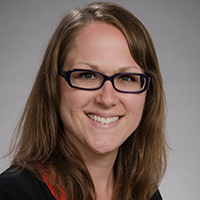Research Planning During Fellowship

Most cardiology fellowship programs encourage fellows to participate in research; however, making arrangements for research time during fellowship may require some creativity. This is especially true for advanced fellows, researchers in a non-traditional setting, or fellows interested in an area not currently under investigation by faculty at their institution. Mentorship, funding and research methods coursework are three key considerations in this process.
Clinical mentors can help identify faculty in other departments (or in some cases other institutions) who may be able to act as research mentors. It is best if you have outlined a few specific research questions or ideas to help direct this search. If you are looking to join a study in progress, identifying a mentor aligned with your interests is important. However, research mentors do not always have to work or be trained in the same clinical area you are interested in. What they bring to the table is knowledge of the research process and methods that you might employ. If you are designing your own study, finding a mentor who can guide you through that process is key. It is often helpful to have a few mentors or a mentoring team to help you achieve your goals. Different mentors may be more or less involved at some stages of research – they do not all need to be equally engaged at all times. If you find that your relationship with a mentor is not working, it is okay to look elsewhere as long as you are honest about the transition.
An important consideration that is often poorly understood by fellows is how funding affects research time during fellowship. Some programs are designed to have most of the third (and sometimes a fourth) year dedicated to research, but this is not always the case. More often, a few months can be reserved for research, while the rest of the third year is clinical time. The financial impact of the fellow participating in clinical care is what drives this. For a fellow to have more extensive and protected research time, independent funding is usually needed, which can come in the form of internal grants or external grants such as foundation research awards or NIH funding. These often require an application process that needs to be completed months or sometimes up to a year in advance, and they will often require at least 80 percent of your time protected for research for the duration of the grant. Most will require some sort of statement of interest and letters of recommendation. Just like choosing mentors, identifying the right grant can take some time. The funding source does not have to be primarily cardiology-related, as long as it somehow fits into the research plan. These grants are competitive and require a commitment from your fellowship program, cardiology division and mentors.
Another consideration in planning for research time is whether there is need or opportunity for formal research methods training. Most cardiology fellows do not have extensive epidemiology and statistics experience, so look for mentors and grants that can enhance your understanding of these methods. Some universities have tuition discounts or exemptions to fund graduate courses. Other grants offer tuition support for completion of a graduate degree or certificate, but often a few well-chosen courses will meet your needs. When planning for coursework, make sure to account for possible conflicts with clinical commitments and choose courses that relate to your project whenever possible.
Unless you came from a training pathway focused on research, blazing your own trail starting in fellowship can be daunting and challenging. Research is not the path of least resistance and even people who are great researchers do not end up with research careers. Knowing what you do not know and finding the answers is a great place to start.
This article was authored by Jill M. Steiner, MD, fellow in training (FIT) at the University of Washington in Seattle, WA.

